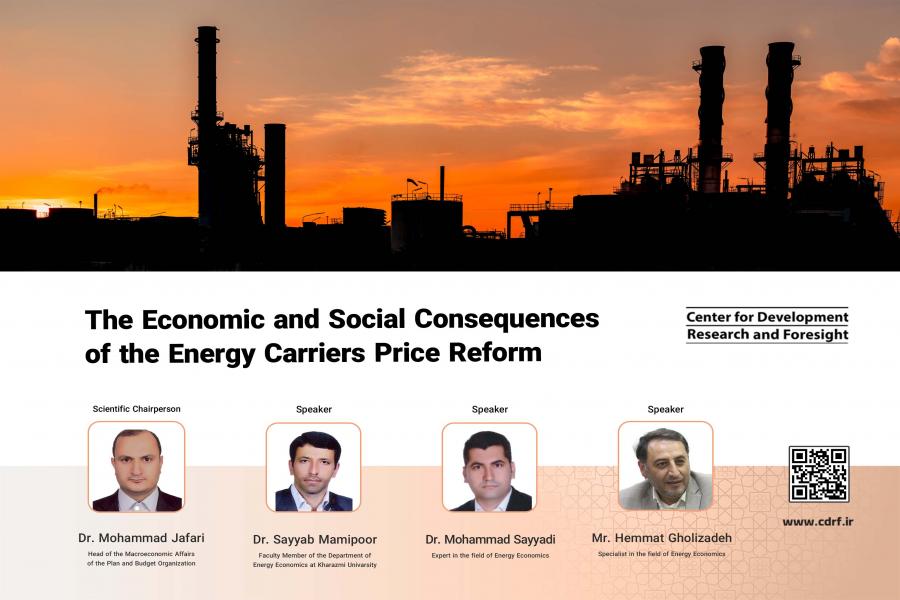
-
بررسی آییننامهها و دستورالعملهای برنامه هفتم پیشرفت
-
بررسی عوامل موثر بر افزایش تصادفات و تلفات جادهای و سوانح رانندگی و دادهکاوی تلفات انسانی
-
سازماندهی و بازآرایی فضایی آموزش عالی کشور
-
به روز رسانی سند ملی آمایش سرزمین
-
انجام مطالعات مناطق آزاد به عنوان نواحی پیشران اقتصادی کشور
-
اصلاح ساختار بودجه و پیاده سازی نظام یکپارچه مدیریت اطلاعات مالی دولت (IFMIS)

Given the significant role of energy in Iran’s economy, the pricing of energy carriers, particularly gasoline, has always been a critical factor in the implementation of government policies and the overall economy of Iran. The Energy Subsidy Reform policy and the appropriate pricing method have consistently posed challenges, with various governments grappling with economic, social, and environmental challenges in gasoline price reforms.
It is worthwhile to note that the same challenge exists in the petroleum products sector. To be more precise, the country’s energy industry is severely inefficient. Hence, controlling energy consumption is a prerequisite for achieving eight percent economic growth. In this regard, if gas consumption is not controlled, there is a possibility that the country will become a gas importer. Therefore, the issue is twofold: firstly, what alternative approaches exist for gasoline market policies, and secondly, which policy approach can be suitable for this market, taking into account the economic, social, and environmental dimensions.
The following suggestions arise from the perspective of the scientific manager and speakers at the scientific-specialized conference of the Center for Development and Foresight Research, entitled “The Economic and Social Consequences of Energy Carriers Price Reform”:
- Choosing the appropriate approach to change gasoline prices in accordance with the country’s conditions: For implementing any decision regarding gasoline price increases, it is recommended to consider economic and social considerations, particularly in the current situation and inflationary conditions. For this purpose, in the first step, a) the continuation of a quantity-based quota with a fixed price, and b) floating pricing based on consumption levels (with a 5% tax rate) should be on the agenda. In the second step, after the successful implementation of the first step, a policy of gradually increasing the quantity-based price as a percentage of inflation should be implemented.
- Choosing an appropriate policy option for gasoline price increase: In gasoline pricing, considering the overall economic, social, and political conditions, three policy options are proposed:
- Liberalizing and having a single price for gasoline while directly paying cash subsidies to vehicles.
- Floating pricing based on consumption with a non-quota price and imposing a consumption tax.
- Allocating quotas to individuals instead of vehicles and allowing buying and selling.
- Reforming the governance structure in the energy sector: To improve the energy planning, decision-making, and decision-making system, several proposed reforms and actions should be implemented:
- The administrative structure and budgeting system of the National Oil Company, National Gas Company, and National Refining and Distribution Company should be redefined and reformed according to their roles and positions.
- The energy economy should also be considered in the management structure of the Plan and Budget Organization of the country.
- Hidden subsidies and dollar calculations should be eliminated from budgeting to prevent hyperinflation.
- The Iranian Fuel Conservation Company should be separated from the Ministry of Oil, and the Power Optimization Company should be separated from the Ministry of Energy.
- National oil and gas companies should be subject to all supervisory regulations.



